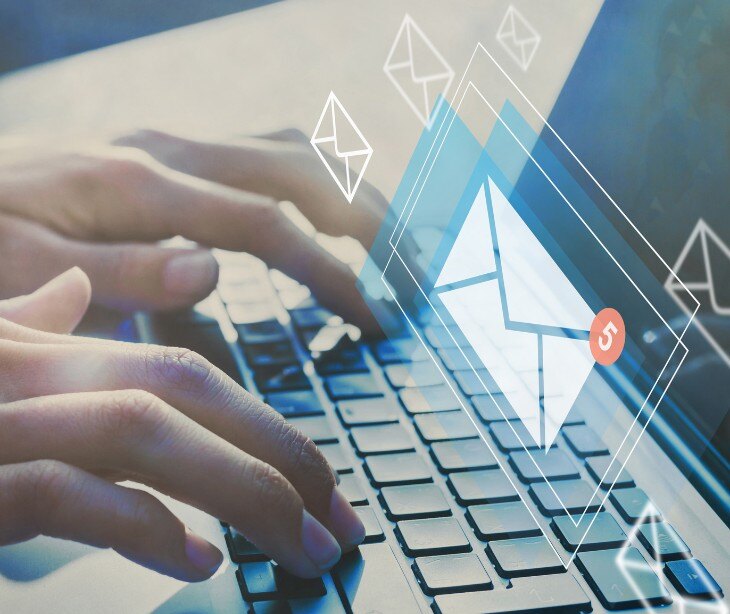
Referral emails in healthcare are an essential part of communication between healthcare providers because they facilitate the transfer of patient information and care responsibility from one healthcare professional to another.
The importance of specialist referral emails
A study from the Journal of Hospital Medicine found that “electronic referral improved the transfer of information, especially when standardized message templates were created. Use of electronic referral appeared to result in reduced waiting time for appointments and enabled more efficient triage.”
Referral emails facilitate this communication by serving the following purposes:
- Continuity of care: They ensure that patient care is seamless as they transition from one provider to another.
- Expert opinion: They facilitate the involvement of specialists who can offer advanced care or diagnosis.
- Documentation: They create a written record of the referral, an important component for legal purposes and patient history.
Key components of a specialist referral email
An effective referral email should be well-structured and include the following elements:
- Clear subject line: The subject line should immediately convey the purpose of the email.
- Professional greeting: Start with a respectful greeting acknowledging the recipient's expertise, such as “Dear Dr. [Last Name].”
- Patient introduction: Briefly introduce the patient, including their name, age, and a succinct description of their condition.
- Reason for referral: Clearly state why the referral is being made.
- Relevant medical history: Include a concise summary of the patient’s medical history that is pertinent to the referral, which may include previous diagnoses, treatments, and any relevant test results.
- Attachments: Attach any necessary documents, such as lab results, imaging studies, or prior consultation notes. Make sure these attachments are clearly labeled and easily accessible.
- Contact information: Provide your contact information for any follow-up questions or clarifications to ensure that the receiving specialist can easily reach you if needed.
- Closing: End with a professional closing, expressing your appreciation for the specialist's assistance.
See also: HIPAA Compliant Email: The Definitive Guide
Best practices for writing referral emails
Be concise
While it’s important to include all relevant details, referral emails should be concise. Avoid overly technical language unless it’s necessary for the specialist’s understanding.
Maintain professionalism
Use formal language and maintain a respectful tone throughout the email. Remember that this is professional communication, and how you present information reflects on your practice.
Related: What is e-professionalism?
Ensure HIPAA compliance
Protect patient privacy by using secure, HIPAA compliant email services. Ensure encryption of the contents to prevent unauthorized access to sensitive patient information.
Double-check for accuracy
Before sending the email, double-check all patient information for accuracy. Mistakes can lead to confusion or delays in patient care.
Follow up
It’s good practice to follow up on the referral, which can be as simple as sending a quick email to confirm that the specialist received the referral and that the patient has been scheduled for an appointment.
Legal and ethical considerations
Under the Health Insurance Portability and Accountability Act (HIPAA), healthcare providers must keep communications about patients secure. Organizations must encrypt emails and use secure platforms that comply with HIPAA regulations. Failure to do so can result in legal penalties and a loss of patient trust.
Additionally, informed consent is an important ethical consideration. Patients should be informed about the referral, including why it’s being made and what they can expect from the specialist to ensure transparency and empower patients to take an active role in their healthcare.
FAQs
What should I do if I don't receive a response to my referral email?
If you don't receive a response, follow up with the specialist via email or phone to confirm receipt of the referral. Patient care should not be delayed due to a communication breakdown.
What should I do if the referral email includes incorrect information?
If you realize there is incorrect information in a referral email, promptly send a follow-up email correcting the error. Include a clear explanation of the correction and any updated information to ensure the specialist receives accurate details.
Is it acceptable to use referral templates?
Using referral templates can help standardize the referral process and ensure that all necessary information is included. However, customize each referral to the specific patient and situation to ensure accuracy and relevance.
Read also: Are email templates HIPAA compliant?
Subscribe to Paubox Weekly
Every Friday we'll bring you the most important news from Paubox. Our aim is to make you smarter, faster.



